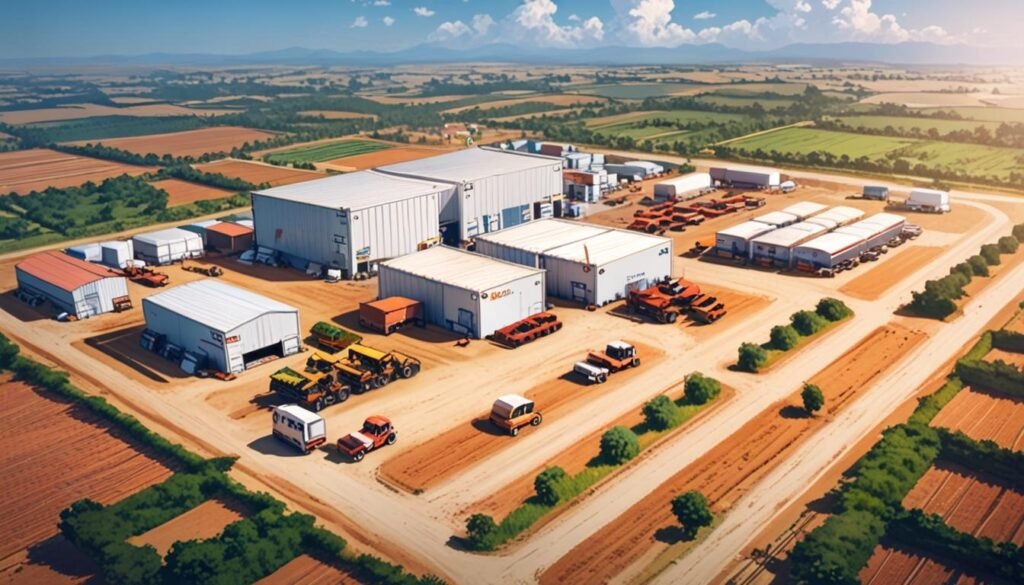**Sub-Saharan Africa**: Unitrans is driving significant changes in the logistics sector by embracing advanced technologies like AI, IoT, and RPA. As it focuses on sustainability and customer-centric solutions, the company aims to reshape operations and respond to evolving market demands in the region.
The supply chain landscape is undergoing significant changes, attributed to technological advancements, shifting market demands, and an increasing focus on resilience and sustainability. Unitrans, a prominent end-to-end supply chain and operations services provider, is at the forefront of this transformation by investing in cutting-edge technologies and closely monitoring emerging trends.
Looking ahead to 2025, industry analysts have identified several key trends that are poised to reshape the logistics sector. There is an expected surge in the adoption of artificial intelligence (AI) and machine learning, which will enable companies to better predict demand fluctuations, optimise routing, and enhance inventory management. The Internet of Things (IoT) is also anticipated to play a critical role in improving supply chain operations by offering unprecedented visibility into the movement of goods and vehicles.
Another significant development is the projected increase in Robotic Process Automation (RPA), which is expected to streamline operations by automating routine tasks, thereby boosting efficiency and reducing costs throughout the supply chain. Despite existing challenges within the logistics sector, there is a continued growth trajectory in last-mile delivery solutions. Additionally, with high mobile penetration rates across Sub-Saharan Africa, the integration of mobile money is set to enhance transaction efficiency within supply chains, although its adoption in corporate environments may vary due to financial considerations.
Experts emphasize that infrastructure development, particularly in cross-border transportation, will remain a priority, supported by increased public-private partnerships aimed at addressing logistical shortcomings. There is also an expectation of more localised manufacturing and distribution hubs emerging, which will help decrease dependence on long-distance supply chains and bolster regional economic growth.
In light of rising climate change concerns, the demand for sustainable logistics solutions is anticipated to escalate. Furthermore, businesses are likely to embrace simplified, localised digital models that allow them to explore various scenarios and optimise operations without disrupting actual processes.
The CEO of Unitrans, Edwin Hewitt, remarked, “The future of logistics in Sub-Saharan Africa will be defined by innovation, agility and a customer-centric approach.” He further elaborated on the company’s commitment to driving innovation, stating, “At Unitrans, we are committed to driving innovation, with technology and industry-specific expertise forming the backbone of our operations, enabling us to deliver value to our clients.”
In response to the evolving industry landscape, Unitrans has made strategic investments in digital transformation. The company has crafted its Enterprise Architecture technology stack to address the unique challenges posed by the African market and its customers. Hewitt stressed the importance of integrating Information and Communication Technology (ICT) with operational excellence, asserting, “The growth of business lies in the seamless integration of ICT with operational excellence.”
Unitrans’ innovative approach is particularly evident in the agriculture sector. The company employs technologies such as drones, autonomous machinery, and Variable Rate Technology (VRT) to enhance efficiency and sustainability across agricultural logistics. Drones are used to provide real-time data on crop health, enabling farmers to make informed decisions regarding irrigation and pest management. Meanwhile, self-driving tractors and harvesters employ precise GPS navigation to optimise field operations while reducing both labour costs and soil compaction. VRT further ensures that fertilisers and herbicides are applied in a targeted manner, thus minimising waste and maximising resource efficiency. Hewitt noted, “By integrating these advanced technologies, Unitrans not only boosts productivity, but also significantly reduces costs in the sugarcane growing process.”
Focusing on a customer-centric approach, Unitrans actively engages with clients to understand their evolving needs and develop customised solutions. “We continuously engage and collaborate with our customers to understand their evolving requirements and develop tailored solutions that address their specific challenges,” highlighted Hewitt.
To enhance operational efficiency, Unitrans has implemented RPA, leading to reduced manual workloads. This improvement allows teams more time to concentrate on customer-centric innovations, enabling the company to respond more swiftly to client needs. The firm has also embraced an agile implementation strategy, allowing for rapid testing and iteration of new solutions, ensuring adaptability to ever-changing needs and technologies.
“Our commitment is to remain a trusted partner for our customers, shaping the future of logistics through tailored solutions that address the unique challenges and opportunities of Sub-Saharan Africa,” concluded Hewitt.
Source: Noah Wire Services





